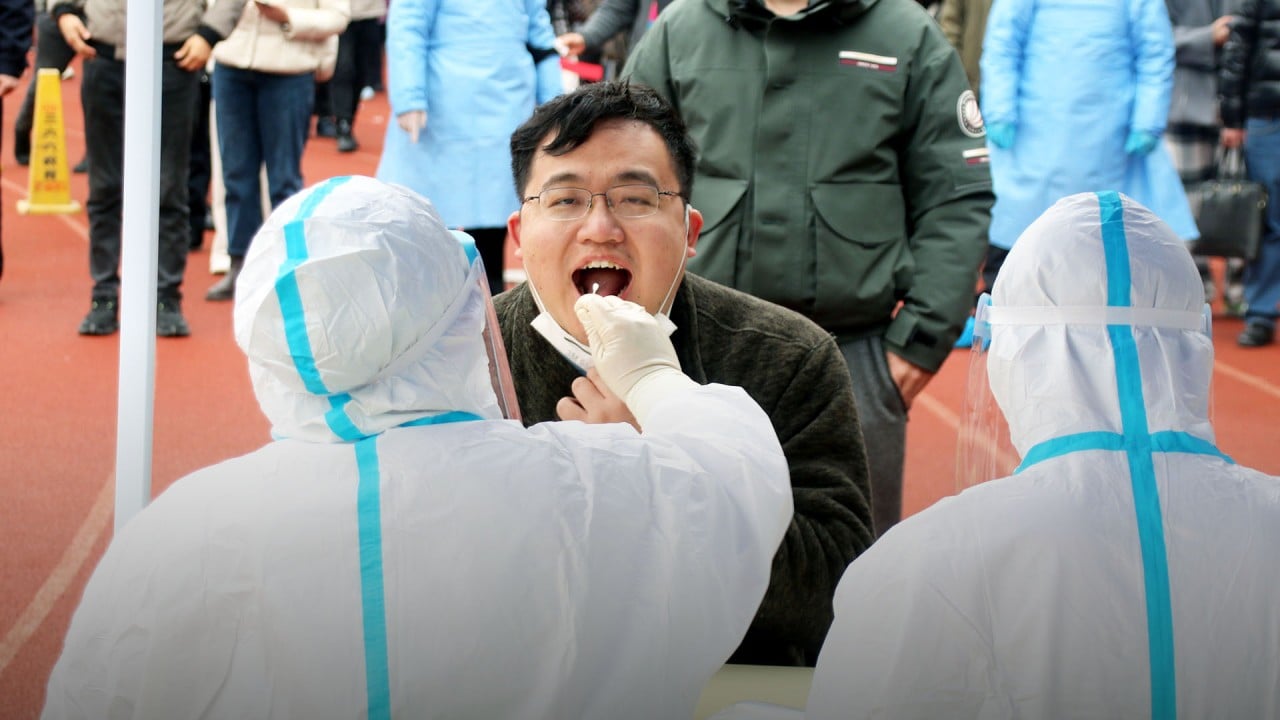
Covid-19 lockdown in Suzhou, a hi-tech hub in eastern China, disrupts operations at major semiconductor production base
- The city’s Covid-19 restrictions have temporarily halted production at major semiconductor foundry HeJian Technology Corp, owned by Taiwanese chip maker UMC
- The lockdown in Suzhou reflects China’s steadfast commitment to its zero-tolerance approach to the coronavirus pandemic
Both Silergy Corp, a global designer of analogue integrated circuits, and Shanghai-based chip design firm Sino Wealth Electronics this week flagged concerns about the production delays at semiconductor foundry HeJian Technology Corp, located inside the China-Singapore Suzhou Industrial Park, because of the city government’s lockdown action.
Production at HeJian, which makes chips for the car, consumer electronics and industrial manufacturing sectors, has “temporarily” ceased after one employee tested positive for Covid-19, according to a statement released this week by the firm’s majority shareholder, Taiwanese chip maker United Microelectronics Corp (UMC).
The Suzhou-based chip foundry said it would resume production as soon as it is cleared by local authorities.
A UMC spokeswoman on Tuesday declined further comment on HeJian’s production status.
German multinational engineering and technology company Robert Bosch, meanwhile, said its manufacturing and logistics operations at the Suzhou Industrial Park will be affected in the short term. Local employees have been allowed to work from home, according to Bosch. The company has its automotive electronics, chassis systems control, car multimedia and machine building operations in Suzhou.
“The way the Suzhou situation is being handled is not notably different from the general principle of zero tolerance,” said Cameron Johnson, a partner at staffing and recruiting firm Tidalwave Solutions and an adjunct faculty professor at NYU Shanghai.
“As far as supply chain disruption goes, the partial shutdown of the Suzhou Industrial Park certainly creates short-term problems that will ripple out over the next several months in multiple industries.”
Shanghai wants more chip capacity to support new-energy vehicle growth
The local government of Suzhou banned all public gatherings and postponed the start of the spring semester on Monday after seven cases linked to a worker at the city’s industrial park tested positive for the Omicron Covid-19 variant on February 13.
The restrictions have affected other major enterprises at the Suzhou Industrial Park, which is home to 13 of the city’s top 20 semiconductor companies including HeJian, King Long Technology and TF-Suzhou.
Silergy said on Tuesday that it will adjust its production strategy to minimise any disruption, as it waits for Hejian to resume production.
Shenzhen-listed Sino Wealth Electronics, meanwhile, said in a regulatory filing on Monday that its shipments “could experience delays due to factors such as delayed resumption of production at suppliers and logistics congestion”. Its suppliers include HeJian and chip testing services provider King Long Technology, owned by Taiwanese King Yuan Electronics Co.
China’s semiconductor production surged 33 per cent in 2021
HeJian produces logic and digital and analogue mixed-signal chips, as well as memory chips and image sensors. It has a monthly capacity of 80,000 8-inch wafers.
Production at TF-Suzhou, a major packing and testing joint venture between TongFu Microelectronics and Advanced Micro Devices, remains normal so far, according to an employee on site who declined to be identified.


